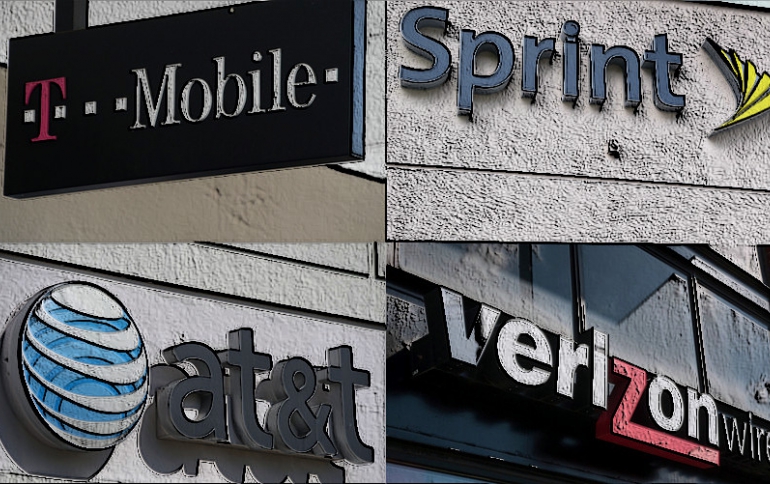
AT&T, T-Mobile, and Verizon Told FCC They Don't Sell Phone Location Data
AT&T, T-Mobile, and Verizon have reposned to the Federal Communications Commission inquiry on whether they sell users' location data gathered from their phones.
Sprint said it is phasing out the sales and will shut them down by the end of this month.
The details came in letters to FCC Commissioner Jessica Rosenworcel, who had demanded an update on the carriers' sale of customers' real-time geolocation data.
Rosenworcel, a Democrat, criticized the Republican-controlled FCC for not taking action against the carriers over the privacy invasions.
"The FCC has been totally silent about press reports that for a few hundred dollars shady middlemen can sell your location within a few hundred meters based on your wireless phone data. That's unacceptable," Rosenworcel said. "I don't recall consenting to this surveillance when I signed up for wireless service—and I bet neither do you. This is an issue that affects the privacy and security of every American with a wireless phone. It is chilling to think what a black market for this data could mean in the hands of criminals, stalkers, and those who wish to do us harm."
All four carriers promised to stop selling their customers' phone location data to third parties in June 2018, after a security problem leaked the real-time location of US cell phone users.
"As of March 29, 2019, AT&T stopped sharing any AT&T customer location data with location aggregators and LBS [location-based services] providers. Our contracts require all parties who have received AT&T customer location data in connection with those arrangements to delete that information and we are verifying that they have done so, subject to any of their preservation obligations," AT&T said. The company added that it always "limited its provision of location information to approved use cases and imposed strict standards to protect against improper use or disclosure of customer location data."
AT&T's letter denied that its sale of assisted GPS (A-GPS) data used with 911 location services violated US law.
But A-GPS data is not part of the NEAD, AT&T explained:
"The FCC's prohibitions on the use of the National Emergency Address Database ("NEAD") for non-emergency services do not apply to A-GPS because A-GPS is not associated with or stored within NEAD. Instead, the NEAD is being developed to include "MAC address and BT-PDA information of fixed indoor access points (e.g., Wi-Fi and Bluetooth) that will be used to determine the specific indoor location of wireless 911 callers. While A-GPS is certainly used by 911 dispatchers to assist in locating individuals in emergency situations, it is also an important feature commonly used by app developers to provide location services. For example, ridesharing apps use A-GPS to make sure the car shows up in the right location. For these reasons, reports of purported improper use of A-GPS are incorrect."
T-Mobile said that it "terminated its location-based service contracts with the Location Aggregators, effective March 9, 2019." T-Mobile had notified data aggregators that it was terminating their contracts on October 26, 2018, but it told Rosenworcel that it "agreed to a phased termination approach because we did not want to abruptly terminate location-based services that provided important consumer benefits, such as emergency assistance services, without giving customers an opportunity to find alternatives."
Verizon told Rosenworcel, "Except for four roadside assistance companies, Verizon terminated its location aggregator program in November of 2018. And Verizon terminated the arrangements with the four remaining companies at the end of March 2019."
When Verizon's data sales were still in full swing, the program "allowed two third-party aggregators to share location information of certain of our wireless subscribers at particular moments in time with their corporate customers under specific conditions (including having obtained consent from our wireless subscribers)," Verizon said.
"Verizon also had a detailed process for reviewing and authorizing the aggregators' corporate customers and those customers were limited to using our subscriber location information for specific, approved use cases," the company said. "Verizon also regularly conducted audits of the program through a third-party auditor."
Sprint told Rosenworcel that it is "currently only using one location aggregator to provide LBS to two customers with a public interest—a provider of roadside assistance for Sprint customers, and a provider that facilitates compliance with state requirements for a lottery that funds state government."
Sprint said it is ending this deal as of May 31. "Sprint anticipates that after May 31. 2019, it may provide LBS services directly to customers like those described above, but there are no firm plans at this time," the company said.





















